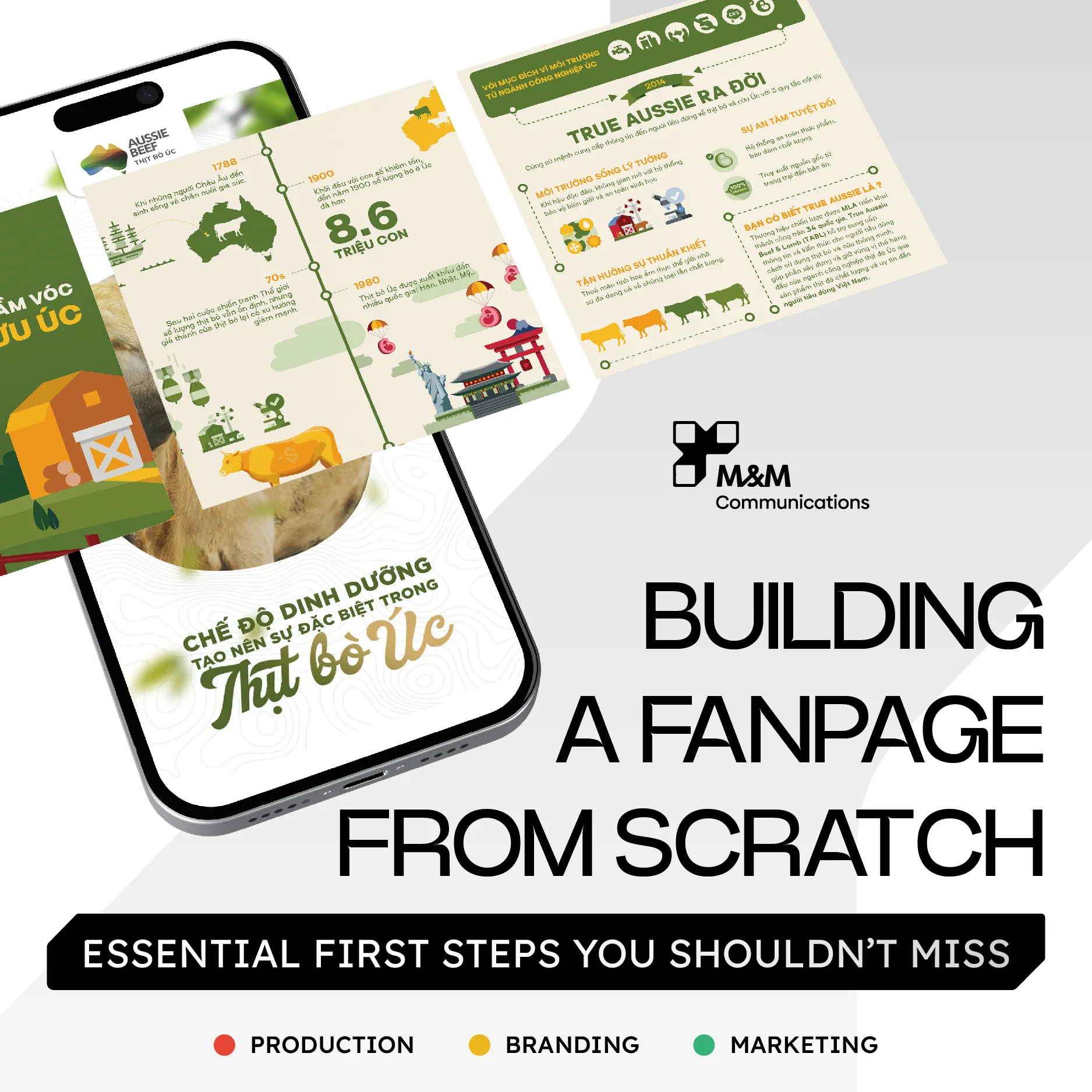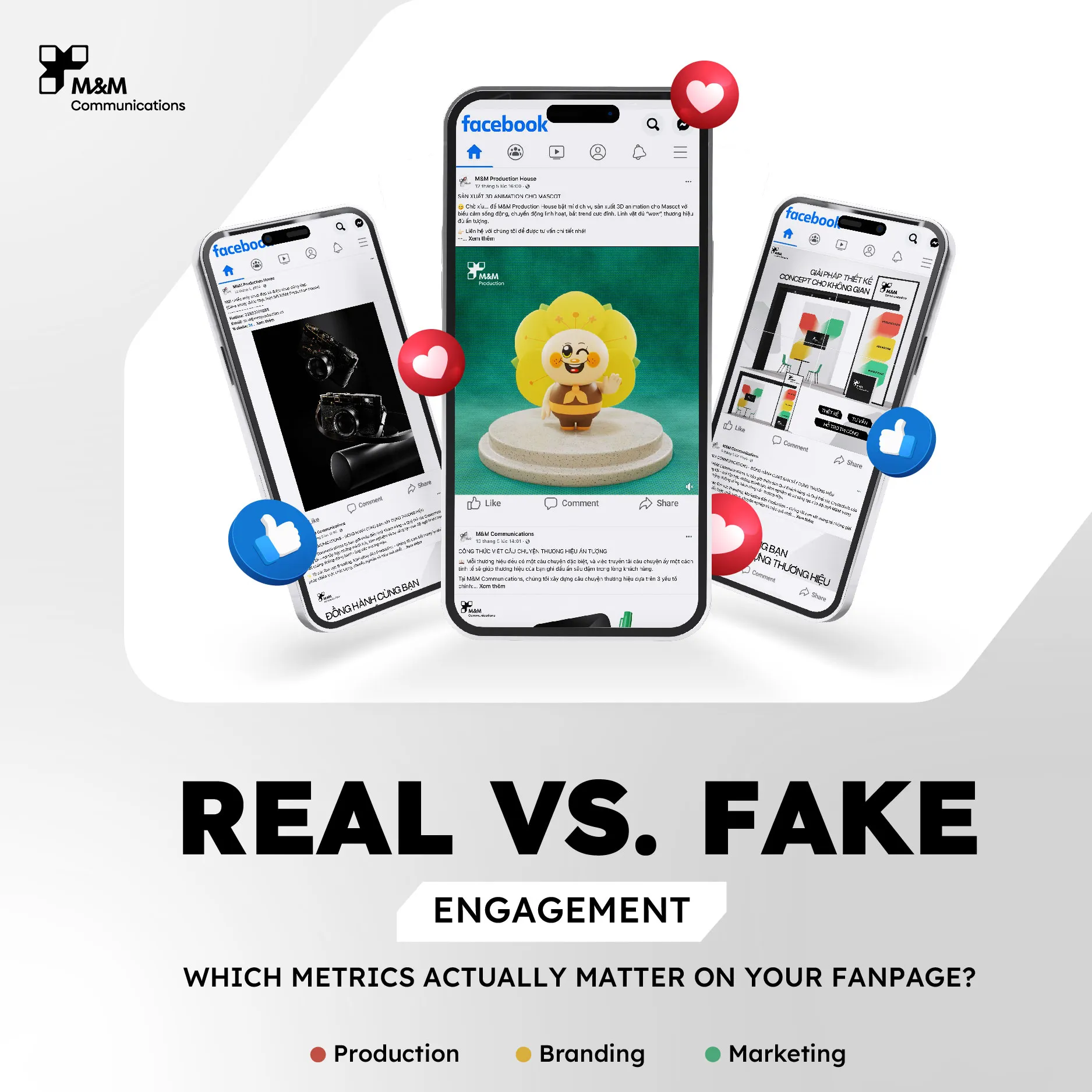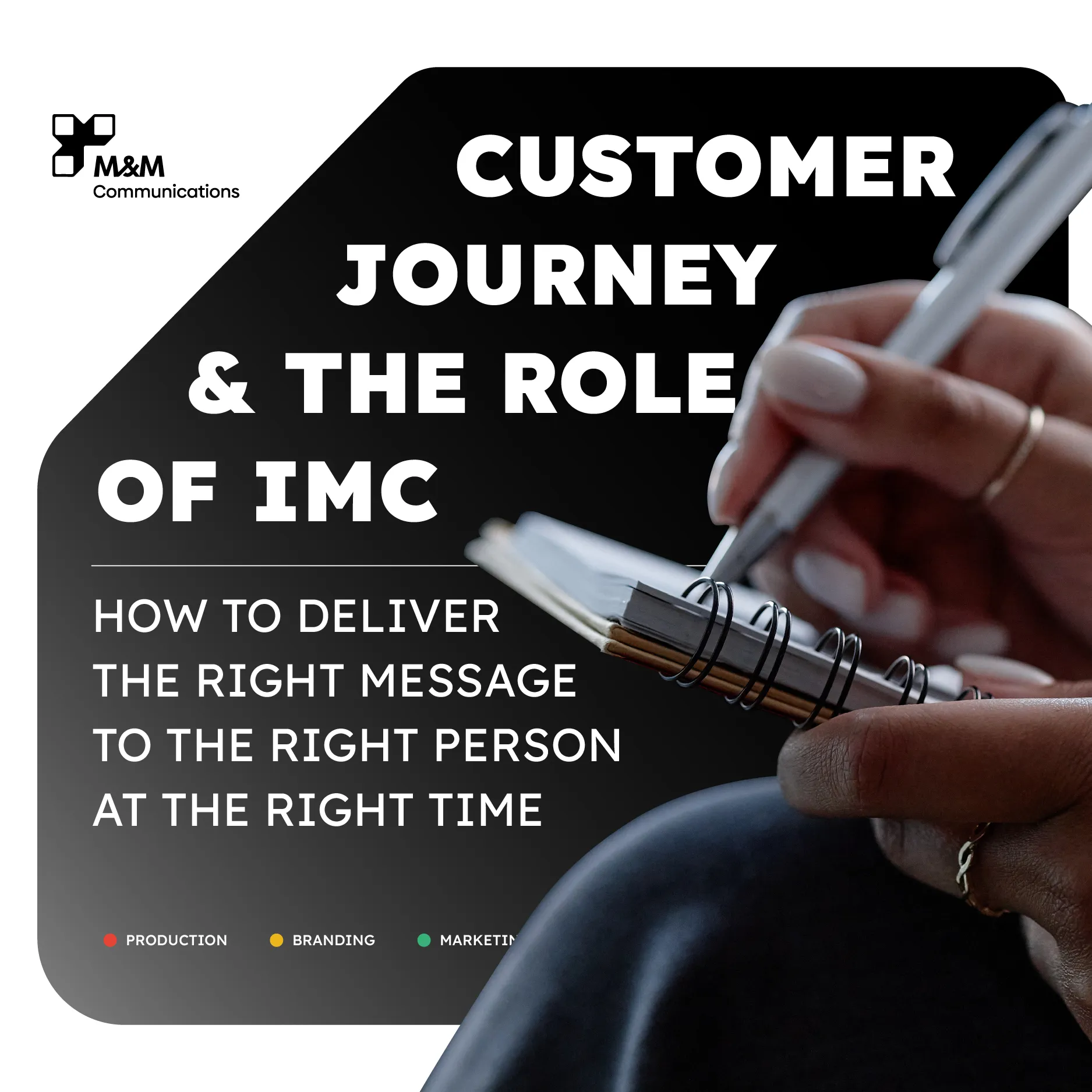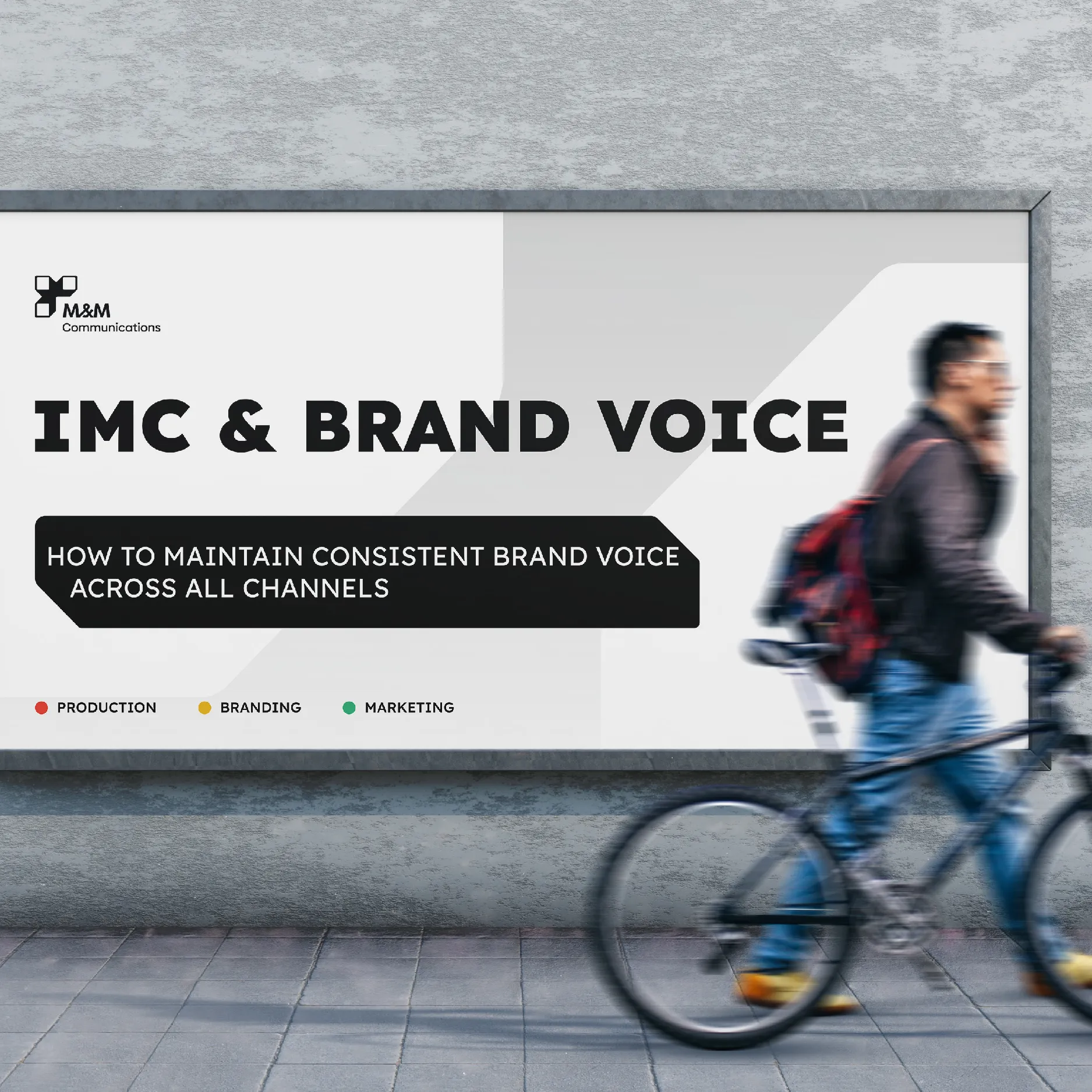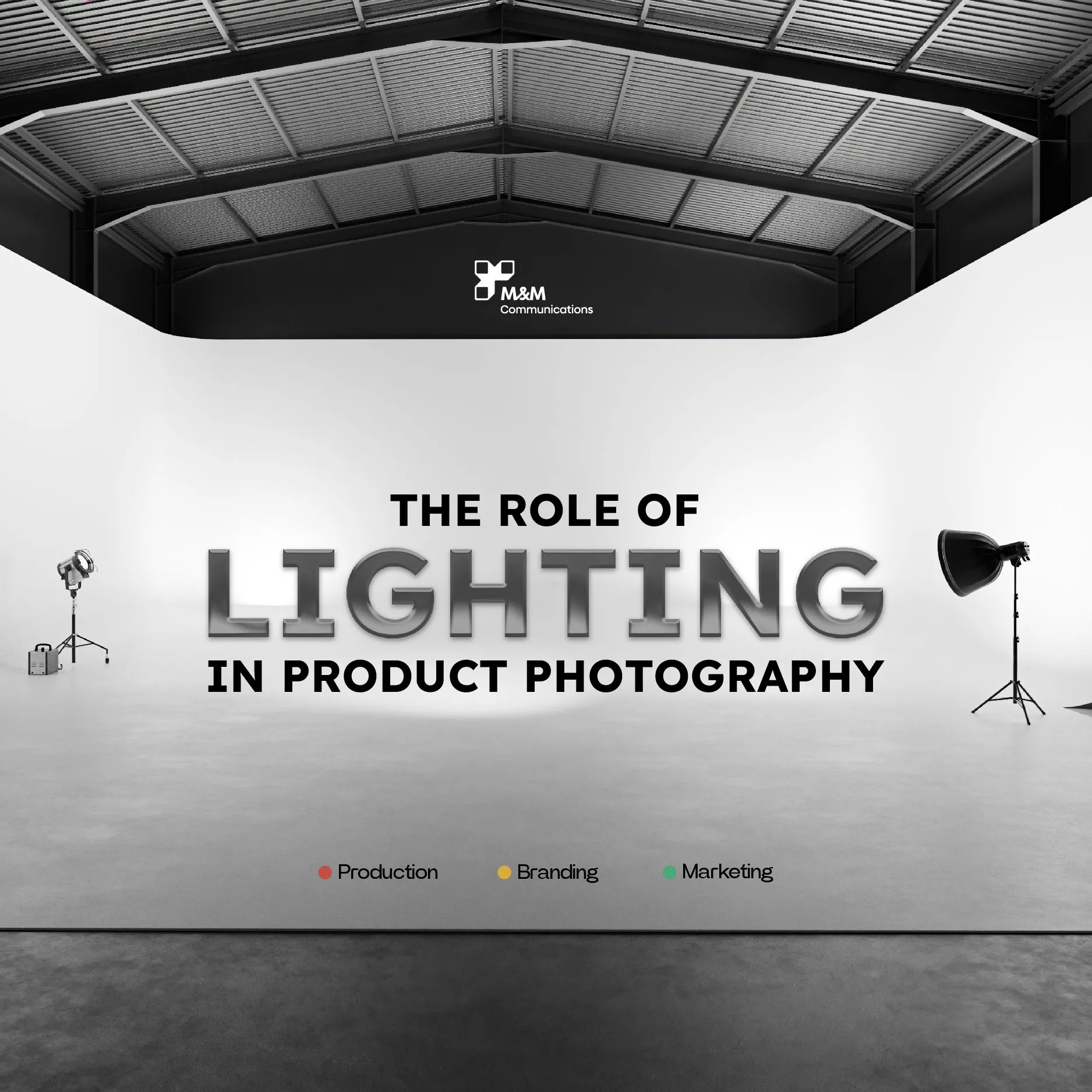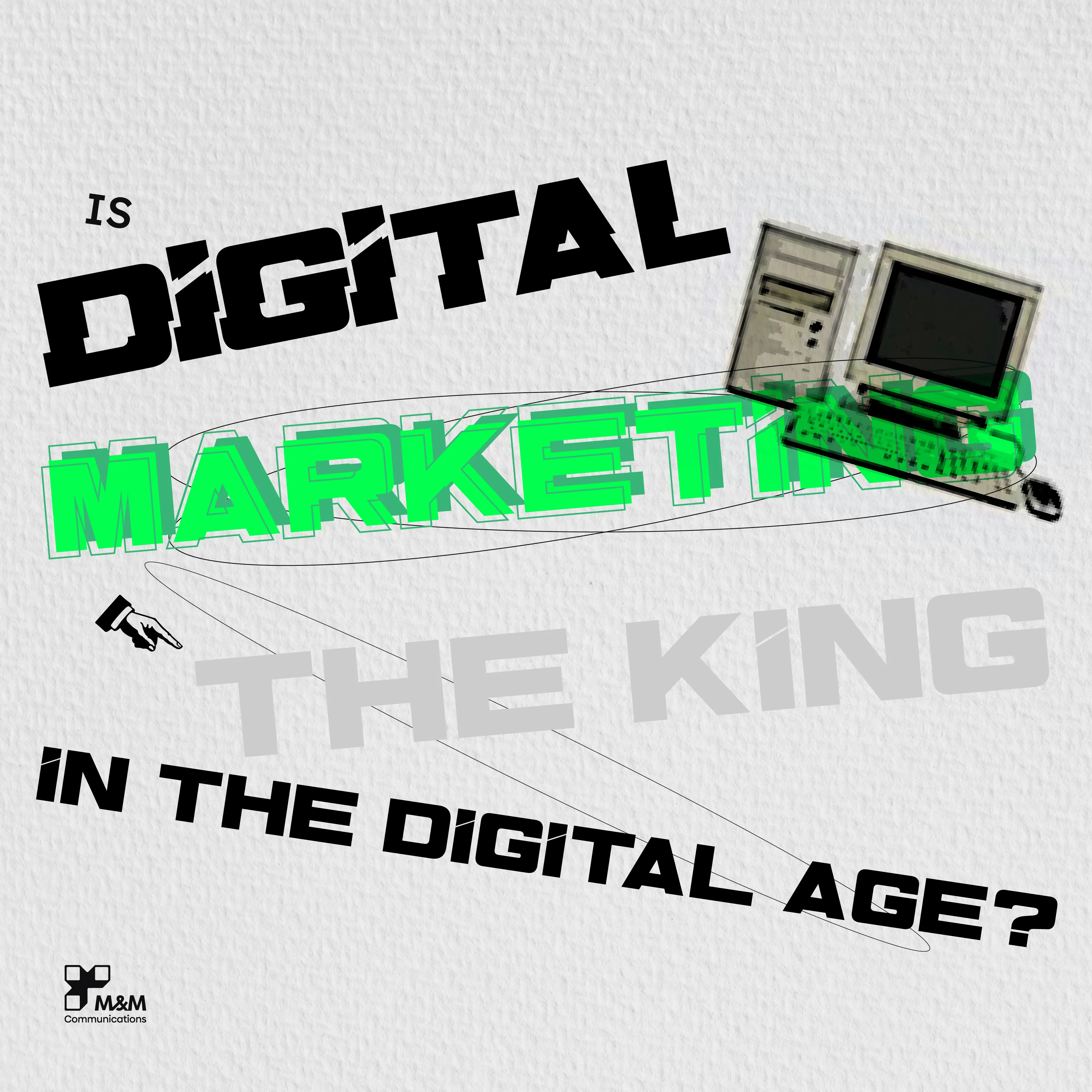
In the context of the 4.0 technological revolution and the explosion of the internet, Digital Marketing has gradually become an indispensable part of the marketing strategy for businesses. But is Digital Marketing the "king" in the digital age? Let's explore this question with M&M Communications through this article.
What is Digital Marketing?
Digital Marketing, or online marketing, is a term that has become familiar in the digital age. However, understanding the concept of Digital Marketing is another story.
According to Philip Kotler - the "father" of modern marketing: "Digital Marketing is the process of planning and executing the conception, pricing, promotion, and distribution of ideas, goods, and services to create exchanges that satisfy individual and organizational objectives through electronic and digital means."

Owned Media
These are communication channels owned by the business or brand. Typically, they include Websites, Microsites, or Blogs. Owned Media platforms can be actively controlled by the business, exist for the long term, allow for flexible editing, and enable targeted customer access.
Paid Media
Paid Media refers to paid advertising channels. Simply put, it's communication channels where brands or businesses pay to advertise. Examples of Paid Media include Facebook ads, Google ads, booking Key Opinion Leaders (KOLs)/Key Opinion Consumers (KOCs) for product reviews, etc.
Earned Media
Earned Media, or viral marketing, utilizes the power of word-of-mouth communication from the public and customers. This can include customer reviews, press coverage, shared content, interactions on social channels, etc.
Social Media
Social Media involves brand interaction with the public and target customers through third-party social platforms like Facebook, Instagram, Youtube, Forums, Twitter, etc.
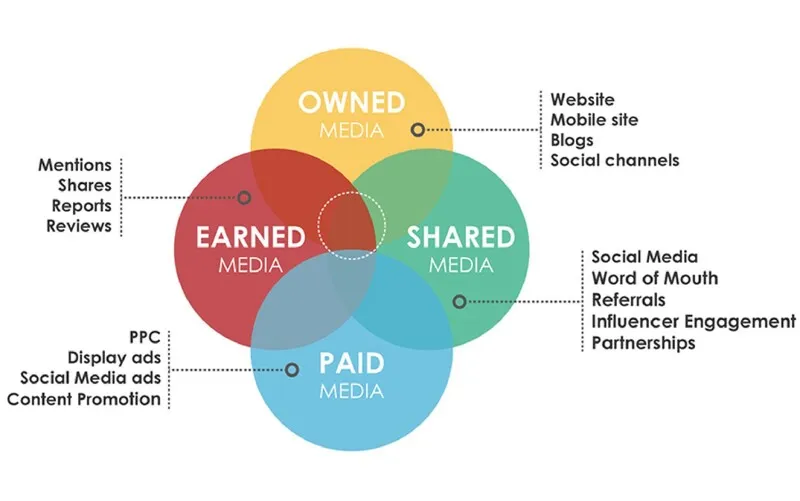
The Role of Digital Marketing for Businesses
Recent reports have indicated that about 50% of businesses have integrated Digital Marketing into their marketing strategies. This demonstrates the rapid growth of Digital Marketing and its influence on businesses.
According to another report by Google with IPSOS Hong Kong, the revenue of businesses using Digital Marketing is 2.8 times higher than those not using this marketing method. So how has Digital Marketing achieved this?
Creating a competitive environment for small and medium-sized enterprises
For small and medium-sized enterprises (SMEs), Digital Marketing plays an essential role. Traditional marketing methods require businesses to invest a lot of money in advertising products/services to customers (flyers, banners, TV commercials, supermarket booth sales, etc.), but it is difficult to measure effectiveness. This is a significant challenge for SMEs that have not yet established market share and brand recognition in the market.
With Digital Marketing, SMEs can still promote their products/services through digital channels to reach a large number of target customers while ensuring budgetary constraints. This helps these businesses compete more easily with larger enterprises, even without significant financial resources.
Cost savings compared to traditional marketing
As mentioned earlier, implementing a Digital Marketing strategy brings more financial benefits than traditional marketing. This is demonstrated by significant cost savings in advertising and efficient capital utilization.
According to the latest Gartner report on advertising spending, businesses can reduce advertising costs by up to 40% when using Digital Marketing. This report shows that 28% of businesses are trending towards shifting their advertising spending from traditional methods to Digital Marketing.

Supporting businesses in achieving their set KPIs
Digital Marketing not only helps businesses optimize advertising costs but also delivers impressive results in business sales. Since 2018, about 80% of businesses have found that traditional advertising methods are no longer as effective as before. In this context, Digital Marketing has become a breakthrough solution, helping businesses increase sales and expand their market with a growth rate of over 30% compared to before.
With specific strategies, Digital Marketing helps businesses reach their targets more effectively, supporting the conversion of potential customers into actual buyers. This can be measured by the conversion rate. According to many statistics, implementing Digital Marketing has helped small and medium-sized businesses increase sales by up to 3.3 times compared to traditional marketing methods. This is clear evidence of the power and benefits that Digital Marketing can bring to businesses.
Has the business invested enough in Digital Marketing?
Although the importance of Digital Marketing cannot be denied, especially in the era of Industry 4.0, is Digital Marketing alone enough for businesses to achieve their KPI goals?
In the era of Industry 4.0, we are witnessing a transition from traditional marketing to Digital Marketing. Since 2018, about 80% of businesses have the view that traditional advertising is no longer effective, and more than 50% of businesses have integrated Digital Marketing into their marketing strategies.
However, transitioning from traditional marketing to Digital Marketing does not mean eliminating one of these methods. In fact, combining both can create optimal cost-effective marketing and reach potential customers. Because traditional marketing channels still have their own markets, especially with the Baby Boomer and Generation X, who enjoy reading newspapers and watching TV. Meanwhile, Digital Marketing is suitable for all demographics, including the younger Generation Z.

The important thing is that businesses need to understand their specific marketing needs, as well as their target customer demographics, and consider their current budget. This helps businesses allocate their marketing investment wisely, ensuring the benefits from their investments.
If your business is looking for a provider of Marketing solutions and wants to research the best method for its resources, contact M&M Communications. We are always ready to advise and propose the best solutions to your business.
>>> Explore: BUSINESS MARKETING SERVICES - THE SPRINGBOARD TO SUCCESS FOR YOUR BRAND
Conclusion
Digital Marketing, with its numerous advantages, has become an effective marketing solution for businesses, especially small and medium-sized enterprises, helping them enhance competitiveness against larger companies that already have established reputations and brand images. However, solely focusing on one marketing method cannot guarantee optimal results for businesses. Combining traditional marketing with digital marketing, along with wise management of marketing resources, is the key to achieving optimal effectiveness and continued growth for businesses in the future.
